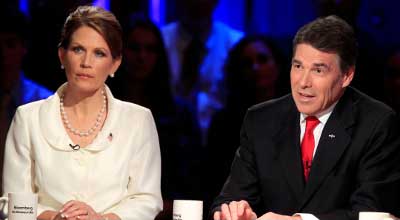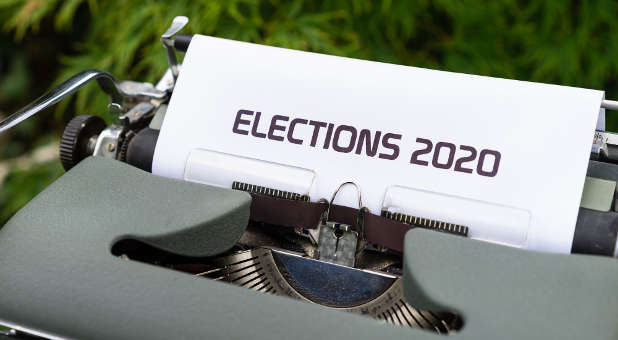Slowly making its way into the public eye is the wave of proactive involvement among Pentecostal/charismatic Christians in the American political system. As John Stemberger, an Orlando attorney and the president of the Florida Family Policy Council, sees it, the movement started in the late 1970s and early 1980s with the Religious Right.
The first major charismatic figure to appear in the Religious Right was Pat Robertson, who announced his candidacy to run for president in 1986. Although Robertson—as a charismatic, was a natural choice for those who have similar faith—Pentecostals have shown that they are willing to support candidates who aren’t Pentecostal by denomination but who understand them or at least show them respect.
“Because charismatics are accustomed to being marginalized by the world, a candidate who reaches out to them with genuine friendship is often rewarded with robust support,” Stemberger writes in a Charisma article.
“If charismatics are anything, they are a passionate people. And when they get motivated behind someone, they will pour an exponential amount of time, money and energy into helping to propel a candidate into a viable status almost instantly,” he adds.
Stemberger says Minnesota Congresswoman Michele Bachmann and Texas Gov. Rick Perry are both examples of this. Although Bachmann is a Lutheran and Perry is a Methodist, charismatics support both “because of a willingness to speak to, work with, befriend and sincerely embrace these believers.”
Bachmann, an Oral Roberts University graduate, has charismatic roots. Interestingly, she placed first in the same Iowa straw poll Robertson won 24 years earlier.
Pentecostals also played a part in Sarah Palin’s instant rise to fame in the 2008 elections. The Christian community buzzed over the fact that she grew up in Wasilla Assembly of God church in Alaska immediately after Sen. John McCain chose her as his vice presidential candidate.
Since Perry partnered with Charismatics to hold The Response, a day of prayer and fasting in August, they have also have had a major role in propelling him to his initial GOP front-runner status. The event attracted more than 30,000 Christians and culminated with Perry praying and reading Scripture.
Behind the scenes, charismatics such as Alice Patterson, Doug Stringer and leaders from the International House of Prayer in Kansas City, Mo., were responsible for organizing The Response.
According to Stemberger, Perry and Bachmann represent the candidates that typically attract Pentecostals.
“Based on observing purely intuitive appeal, Pentecostals are prone to like authoritative candidates who speak with the same authority of a traditional Pentecostal preacher,” Stemberger writes. “Charismatics often opt for candidates who reflect the passion and dynamic nature of their own form of worship.”
He says Pentecostals often seem more open than other segments of the church to supporting minority candidates, including women, Hispanics and African-Americans. This could be because “charismatic churches allow women to be pastors and hold leadership positions; a majority of Hispanic Protestants are charismatic in at least expression of their faith, if not theology as well; and the black church in America has been integral to the Pentecostal movement since its formation in the early 1900s,” Stemberger argues.
Pentecostals are typically liberally conservative across the board, especially on moral and social issues. Therefore, they tend to identify with and register as Republicans—with the primary exception being black Pentecostals, who have been predominantly loyal to President Barack Obama.
For example, most churchgoers in the Church of God in Christ (COGIC) are registered Democrats, although they would most likely be against gay marriage and abortion—both of which Obama supports.
On the other hand, the majority of Hispanic Charismatics tend to be Republican, according to the latest Pew Hispanic Center study. Stemberger attributes this largely to the fact that the Latino alignment with white evangelical Republicans against same-sex marriage and abortion is almost universal. However, Hispanic believers differ with conservative Republicans on immigration.
This is adapted from John Stemberger’s article, “The Rising Tide of Influence,” which originally appeared in the November issue of Charisma. Click here to view the digital issue.
See an error in this article?
To contact us or to submit an article





















